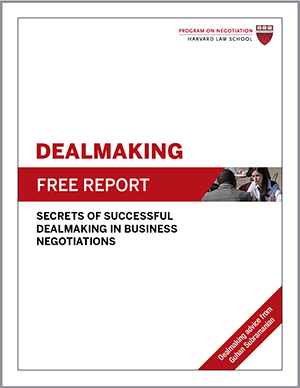
Renegotiation is generally triggered for one of two reasons: an imperfect contract or changed circumstances.
The goal of any written contract is to express the parties’ full understanding of their deal.
Capturing the Essence of Your Negotiated Agreement in Writing
Despite lawyers’ belief in their abilities to capture that agreement in writing, in practice, they can only achieve that goal imperfectly, for three reasons.
- The signers are incapable of predicting all the events and conditions that may affect their transactions in the future.
- Concerns about transaction costs limit the resources that parties devote to the contracting process.
- Even if both sides had the requisite foresight and resources to draft a perfect agreement, they have no assurance that a court will interpret their contract exactly as they intended.
A Change in the Circumstances is Another Major Cause for Renegotiations
For example, a sudden fall in commodity prices, the development of new technology, or unexpected increases in energy costs can force everyone back to the negotiating table.
A change in circumstances usually increases the deal’s costs or reduces its benefits to one side. When that party concludes that the cost of complying with a contract is greater than the cost of abandonment, it usually rejects the deal or demands renegotiation.
Although the risk of renegotiation is present in any deal, you can reduce this risk during your initial contract negotiation and also minimize renegotiation costs when they actually happen.
The following suggestions on how to handle both situations are taken from Jeswald Salacuse’s book The Global Negotiator: Making, Managing, and Mending Deals Around the World in the 21st Century.
What to Do Before the Deal Breaks Down:
- Foster a relationship with the other side
- Take the necessary time
- Provide for a renegotiation process
Deal Making: What Leads to Renegotiation?
- Avoid Hostility
- Weigh your claim against the value of the relationship
- Create value in your renegotiation
- Fully evaluate the costs of failure
- Involve all necessary parties
- Design the right forum and process
- Consider hiring a mediator
Have you ever experienced a renegotiation? Share your outcome with our readers in the comments section.
Adapted from Redoing the Deal by Jeswald Salacuse for the April 2005 issue of Negotiation.





